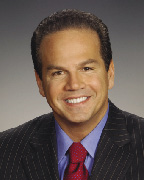We have an exciting new President, Barack Obama, and America is poised for greatness. Wrestling with an economic downturn, the likes of which has not been seen in generations, however, we as a country must work across partisan lines, across levels of government and across industry, to put people back to work and to get our economy moving again.
The sudden collapse of the housing and financial markets seemed to take some of us by surprise, but experts had been warning us we were skating on thin ice for quite a while.
What we as a nation must now do is learn from those mistakes, and work together to rebuild our housing, financial, automobile and other industries, and make sure the United States remains the global giant it has always been destined to be. The Economic Stimulus bill is one prominent means of addressing this crisis.
Late last month, and again this week, I had the honor of joining our new President - as one of several of the nation's mayors - in a news conference about the impact of the Stimulus bill upon the middle-class. President Obama is firmly committed to helping the nation's cities - our economic work-horse - and will be vigilant in seeing its final adoption. And that is critical to our national and international interests.
By the time this column went to print, only one chamber - the US House of Representatives - had acted on the Economic Stimulus legislation and the Senate had the bill under consideration. An $819 billion bill passed the House, with a number of funding requirements. All of them will have a direct bearing on America's survival, and many of them will affect the industries that concern you in the very short run.
Those highlights include:
* Economic Development Administration: $250 million, with up to $50 million eligible for transfer to regional economic development commissions
* Community Development Block Grant: $1 billion
* Technology Innovation Program: $70 million
* Manufacturing Extension Partnership: $30 million
* National Science Foundation: $2.5 billion for science and technical research services
* Department of Energy: $18.5 billion for energy efficiency and renewable energy, including $3.5 billion for energy efficiency block grants
* Department of Transportation: $30 billion for highway infrastructure investment; $12 billion in transit funds
The legislation also establishes the Economic Stimulus Lending Program for Small Businesses, which allows the SBA to guarantee up to 95 percent of qualified 7(a) small business loans.
Tax provisions include an extension of renewable energy tax credits, as well as raising the limit on Clean Renewable Energy Bonds by $1.6 billion and raising the limit on Qualified Energy Conservation Bonds by $2.4 billion.
A new category of bond authorized in the bill is the Recovery Zone Economic Development Bond, with a $10 billion limitation.
David Cicilline is the mayor of Providence.
Tags:









